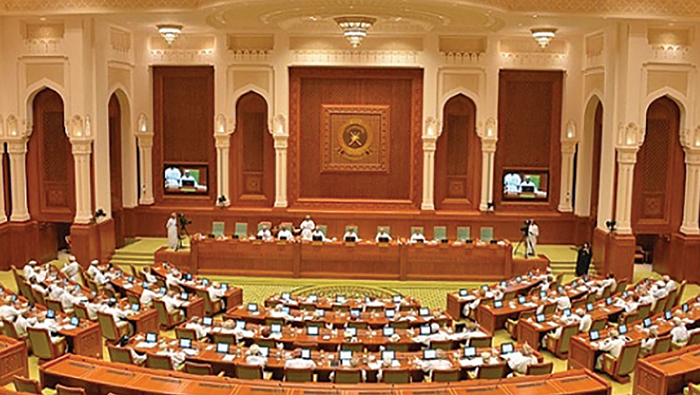
Muscat: A new points system to meet Omanisation levels has been proposed by the country’s Majlis Al Shura, as part of an initiative to integrate quality locals into the workforce.
Should this proposal come into effect, companies could switch to an Omanisation points system, where Omanis with better qualifications who are placed in more senior positions get more points than those in lower roles.
The three-tier system favours leadership roles, with top-level jobs earning three points for companies that employ Omanis in such roles. Middle-level jobs are worth two points, while lower-level jobs will fetch companies one point.
The proposal was submitted by the Majlis Al Shura in the presence of the Youth Committee and the Ministry of Manpower, and was titled “linking the Omanisation rate with points in the private sector”.
Mohammed Al Busaidi, Head of Youth and Human Resources at the Shura Council, said, “The aim of the proposal is to encourage companies to follow Omanisation on a qualitative, not quantitative basis, and to focus more on Omanisation in top jobs because senior jobs are better paid; so, the total human investment in these jobs will increase.”
The Shura committee stressed that the proposal will reduce the phenomenon of superficial Omanisation, and would create a healthy working environment in the private sector.
Al Busaidi said, “A proposal was submitted by a member of the Shura Council for the implementation of a new system of Omanisation based on points rather than the number of persons. The system we put in place will give value to each level.”
On the preparing of the proposal, the Council reviewed the experiences of other countries in applying such a system.
Al Busaidi explained: “In fact, this system was applied in some Gulf countries and we hosted a representative from the Ministry of Manpower to discuss this proposal and take his opinion to study the proposal in an integrated manner. The Ministry will soon launch a training programme to encourage Omanisation in administrative and higher jobs. The proposal will need a further study to examine its feasibility and applicability in the Sultanate.”
The Ministry’s opinion was that this proposal was applied in some countries, some of which were successful and some others that were not or were still testing the system.
According to the Shura Council statement, “The Undersecretary of the Ministry of Manpower said that the ministry has examined alternative solutions to the challenges of Omanisation in the private sector and that the proposal for Omanisation and points needs to be studied for its gradual application in some sectors.”
However, an official at the Ministry of Manpower told Times of Oman that linking the Omanisation rate with points in the private sector was a proposal from the Shura Council, which would dovetail with the new traffic-light system launched by the ministry, should the former receive approval.
He said, “It’s only a proposal from the council. The Ministry will launch on December 23 a new traffic light-themed online system which will tell employers immediately if they can hire expats but only after they hit their Omanisation quota.”
Work permit
“Oman’s Ministry of Manpower will know instantly whether firms hire enough citizens with the new electronic work permit system,” he added.
Local job seekers and employed professionals said they were looking forward to seeing if the new points system would help.
Nuzha Al Wahaibi, a recent graduate, said the system would help companies know where they could fit in new Omani workers, saying, “Each position will have points attached to it. The company will now know where to place us. If they can’t fit us in one position, they will now know and this will make it a little easier for them.”
“It is no secret that a lot of us want to become managers in the future so we can provide a good life for our family,” added Hamdan Al Kasbi, a supervisor in a firm.
“Now, there is more encouragement for companies to train Omanis, so they can learn from expats and then do the job properly in the future.”
The proposal by the Shura Council is the latest in the country’s Omanisation drive, which looks to incorporate more locals into the private-sector workforce. According to data from the Sultanate’s National Centre for Statistics and Information, there are only 250,717 Omanis employed in the private sector. A majority of them (57,041) occupy clerical occupations, while another 44,413 are in the service sector.
Engineering services have another 57,794 Omanis in their field.
This is in comparison to the nearly 1.5 million workers of expat origin in the private sector. NCSI data shows that there are 1,444,405 expatriate workers in the private sector, of whom 39,442 are women and 1,404,963 are men.